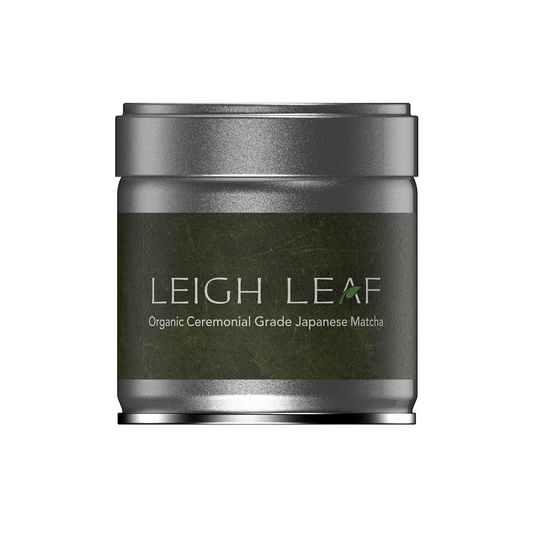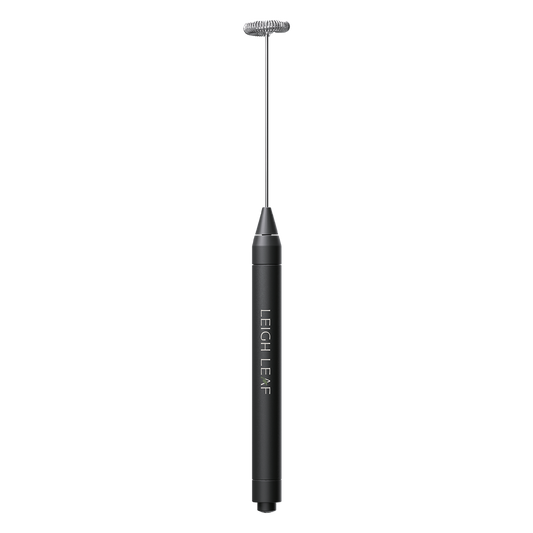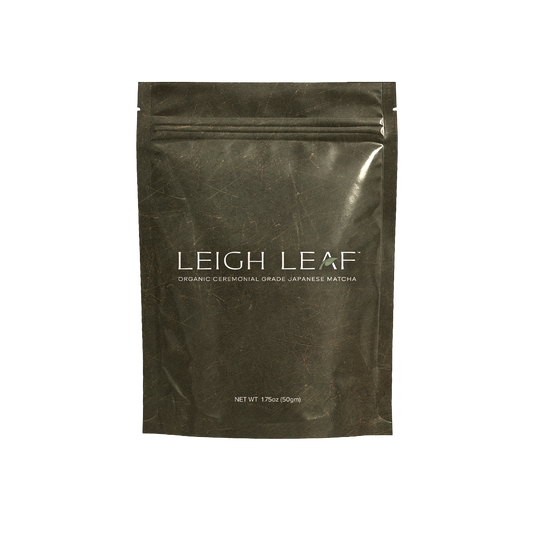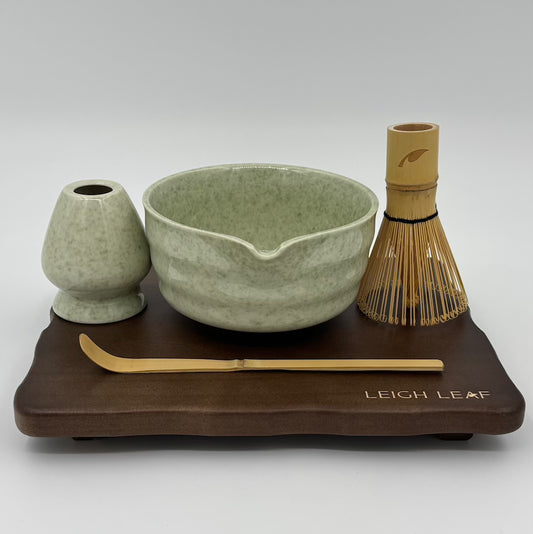
Is Matcha Healthier Than Coffee?
Share
When it comes to choosing a beverage to kickstart your day, the age-old debate between matcha and coffee has gained significant attention. Is matcha healthier than coffee, or is coffee the reigning champion of morning rituals? Let's delve into the intricacies of these green and brown elixirs to decipher which one deserves a spot in your daily routine.
Table of content
What is Matcha?
First things first, what exactly is matcha? Derived from shade-grown tea leaves, matcha is a finely ground powder that originated in ancient China and gained prominence in Japanese tea ceremonies. Matcha offers a concentrated taste and a boost in nutrients when consumed instead of traditional green tea powder, where leaves are infused and discarded.
Related Article: What Is Matcha
Benefits of Coffee for Your Health
Coffee, on the other hand, has been a global favorite for centuries. In addition to its aromatic appeal, coffee is packed with antioxidants and essential nutrients. The primary stimulant in coffee is caffeine, which gives you a much-needed energy boost and enhances your mood and cognitive function. A rich, bold taste has become synonymous with waking up and facing the day.
How Matcha Benefits Your Health
Now, let's explore how matcha can be part of a healthy diet. One of matcha's standout features is its unparalleled concentration of antioxidants, particularly catechins. These foods contain compounds that reduce cancer risk as well as improve cardiovascular health. Matcha's unique blend of amino acids, vitamins, and minerals makes it a nutritional powerhouse that can complement a well-rounded diet.
Does Matcha Give You Energy Without a Crash?
One of the significant advantages touted by matcha enthusiasts is its ability to provide sustained energy without the inevitable crash associated with coffee. The combination of caffeine and L-theanine in matcha promotes calm alertness, preventing the jittery aftermath often experienced after consuming a strong cup of coffee. This unique synergy can contribute to improved focus and productivity throughout the day.
Matcha Is Rich in Antioxidants
Matcha's antioxidant content is, without a doubt, one of its most important health benefits. In addition to neutralizing free radicals, antioxidants reduce oxidative stress and support overall health. With a significantly higher concentration of antioxidants compared to coffee, matcha emerges as a formidable contender in the quest for a health-conscious beverage.
Matcha May Help Boost Cognitive Function
Beyond the energy boost, matcha's impact on cognitive function sets it apart from coffee. Caffeine and L-theanine are combined in matcha to enhance attention, memory, and cognitive performance. As a result, matcha is an appealing choice for those seeking to sharpen their mental acuity without the jitters often associated with excessive coffee consumption.
Does Matcha Reduce Anxiety Better Than Coffee?
For individuals sensitive to caffeine-induced anxiety, matcha may offer a gentler alternative. Matcha contains L-theanine, which promotes relaxation without sedation, preventing the jitteriness that some coffee drinkers experience. While coffee can exacerbate anxiety in susceptible individuals, matcha's unique composition may provide a smoother, more calming experience.
Matcha May Promote Detoxification and Assist in Weight Management
Matcha's health benefits extend beyond mere energy and cognitive perks. In addition to detoxifying the body, matcha's chlorophyll content may remove heavy metals and toxins. Additionally, matcha's potential to boost metabolism and assist in weight management has piqued the interest of those seeking a holistic approach to their well-being.
Which is Better?
The million-dollar question remains: Is matcha healthier than coffee? Health can't be solved with a one-size-fits-all approach. Depending on individual preferences and health goals, matcha and coffee both offer distinct advantages.
If you're seeking a potent jolt of energy and mental clarity, coffee might be your go-to beverage. On the other hand, if you prefer a smoother, more sustained release of energy without the notorious caffeine crash, matcha could be your new morning ally. It depends on your body's response to each beverage and your personal preference. You can find out more about Leigh Leaf by clicking here.
Conclusion
In the matcha vs. coffee showdown, there is no clear winner. Both beverages have their merits, and the choice ultimately depends on individual preferences and health objectives. Coffee aficionados may revel in the robust flavor and immediate energy surge, while matcha enthusiasts appreciate the smooth, sustained vitality and abundance of health-promoting compounds.
As you navigate this caffeinated conundrum, consider incorporating both matcha and coffee into your routine, depending on your mood and needs. Balance is key, and embracing the diversity of these beverages allows you to savor the unique benefits each brings to the table.
In conclusion, whatever your preferred brew is, the key is to savor your chosen brew mindfully, recognizing that both can be part of a healthy diet when consumed in moderation. So, the next time you stand before the brewing options in your kitchen, know that whichever path you choose—be it the comforting warmth of coffee or the vibrant green allure of matcha—you're making a choice that aligns with your taste buds and, ultimately, your well-being.
FAQ's
Can We Drink Matcha Every Day?
Yes, matcha can be part of a healthy diet when consumed in moderation. Its rich nutrient profile and antioxidant content make it a nutritious addition to your daily routine. Caffeinated beverages should, however, be consumed in moderation to avoid side effects.
Related Article: How Much Matcha Can You Drink Per Day?
Does Matcha Taste Better than Coffee?
Taste is subjective and varies from person to person. Matcha has a unique, earthy flavor with a hint of sweetness, while coffee offers a robust and often bitter taste. It ultimately comes down to personal preference.




